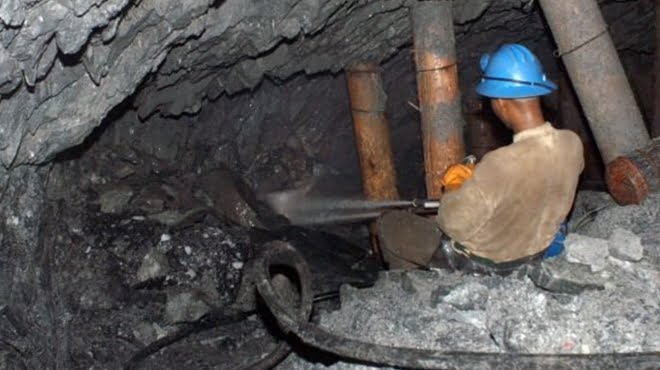South Africa’s plan to force mining companies to give the black majority a bigger stake in the nation’s mineral wealth faces a major obstacle: convincing banks to back billions of dollars of fresh deals in an industry in decline.
Mineral Resources Minister Mosebenzi Zwane said on June 15 that local mines should be at least 30 percent owned by black people, up from the previous requirement of 26 percent. The mining companies need banks to help fund transactions that transfer the stakes to black investors who often don’t have the capital to invest due to their marginalization during white rule. Companies often use dividends or divert cash flows to pay off the debt on behalf on the black empowerment partners, which means full ownership only vests years later.
“The charter will have an effect on our ability to finance the mining industry in South Africa,” said Ursula Nobrega, a spokeswoman for Investec Plc, one of South Africa’s five biggest banks. “We already exercise caution as to who and what projects we finance.”
South Africa is pushing to increase black ownership as it seeks to redress economic imbalances caused by apartheid. The introduction of the latest charter triggered a selloff in mining stocks and a drop in the rand amid concerns that the new rules will deter investment when the country is already in recession.
The sector, once the economy’s bedrock and the foundation on which Johannesburg was built, now accounts for only 7.3 percent of gross domestic product, while fixed-investment into the industry shrank, hitting a 10-year low last year, according to the Chamber of Mines, which represents the biggest producers. South Africa holds the biggest reserves of platinum, chrome and manganese and mining companies operating in the country include Anglo American Plc, Glencore Plc and AngloGold Ashanti Ltd.
The new rules don’t give credit for deals already concluded and from which black shareholders have since divested. They also impose a community-development tax equal to 1 percent of revenue and expand quotas for buying goods and services from black-owned companies.
The Chamber of Mines said it will challenge the new rules in court, while Deputy President Cyril Ramaphosa called for the charter to be reconsidered and the ruling African National Congress said the legislation may cause job losses.
With mining companies using diminishing cash flows to finance empowerment deals, “there could be fewer bankable transactions” Sandile Mbulawa, head of resource finance for Rand Merchant Bank, said in an interview. If the charter is implemented in its current form, fewer companies would meet RMB’s predetermined measures for funding approval, said Business Development Director Henk de Hoop.
Moody’s Investors Service said the proposals are credit negative for mining companies because they will likely require miners to use cash or raise debt to facilitate the equity transfer.
“We expect that current shareholders are unlikely to support a further dilution of their equity interests,” Moody’s said in a report on June 21.
The industry is, to many, symbolic of the country’s ongoing inequalities with its highly paid, mainly white, male executives overseeing hundreds of thousands of workers laboring in some of the world’s deepest and most dangerous mines. Yet critics say many earlier deals have mainly created a politically connected elite and, in some cases, deterred foreign investors.
By 2014, all member companies of the Chamber of Mines had complied with legislation requiring them to have 26 percent black ownership, according to the organization. At that stage, black investors held stakes equivalent to 38 percent of the mining industry, according to the chamber.
“The availability of bankable opportunities will determine whether our exposure to the sector will grow or shrink,” Mike Brown, chief executive officer of London-based Old Mutual Plc’s Nedbank Group, said on Friday. While Nedbank remains committed to funding the South African mining industry, it will “carefully assess the risks of every client and transaction.”
President Jacob Zuma said last week in parliament that he supports the charter.
The current version of the charter is “clumsy, inconsistent and lacks clarity,” Brown said. There’s going to be a lengthy legal process and a long period of uncertainty, all of which is “bad news for the mining industry and investment, growth, jobs and the South African economy.”
Source
